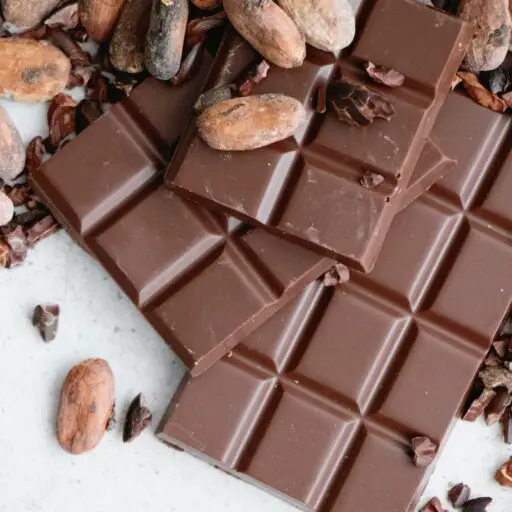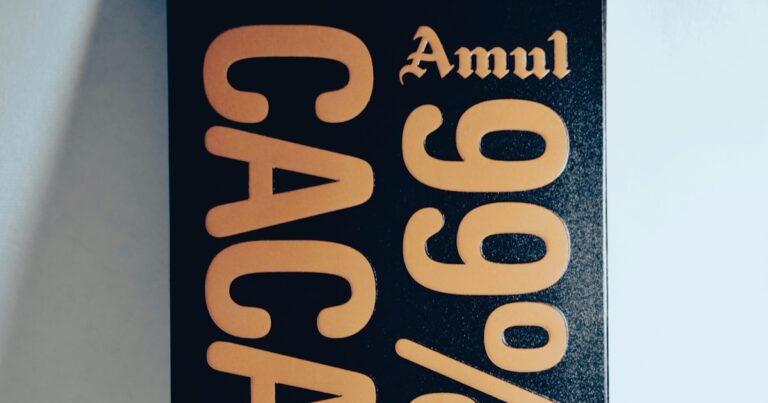Support our educational content for free when you purchase through links on our site. Learn more
How Longevity Studies Reveal Chocolate’s Brain Boost (2025) 🍫🧠
Did you know that your daily chocolate indulgence might be doing more than just satisfying your sweet tooth? Longevity studies from around the world are uncovering fascinating links between cocoa consumption and improved cognitive function—suggesting that chocolate could be a secret weapon for a sharper, healthier brain as we age. From the ancient Kuna tribe’s lifelong love of flavanol-rich cocoa to cutting-edge clinical trials showing enhanced memory and attention, the science behind chocolate’s brain benefits is as rich and complex as the treat itself.
But before you dive headfirst into a candy bar, there’s a lot to unpack: What compounds in chocolate actually help your brain? How much should you eat? And which types of chocolate deliver the most cognitive punch without the sugar crash? We’ll explore all this and more, including expert tips on selecting the best brain-boosting bars and the surprising role chocolate plays in mood, cardiovascular health, and even gut-brain communication. Ready to discover the sweet truth behind chocolate and longevity? Let’s unwrap the science together.
Key Takeaways
- High-flavanol dark chocolate (70% cocoa or higher) is linked to improved cognitive function and slower age-related decline.
- Cocoa flavanols enhance cerebral blood flow, protect neurons, and promote neurogenesis, supporting memory, attention, and processing speed.
- Longevity studies, including those on the Kuna Indians, provide compelling evidence connecting regular cocoa intake with brain health and longevity.
- Choose non-alkalized, minimally processed dark chocolate to maximize flavanol content and cognitive benefits.
- Moderation is key: small daily portions (about 30-40 grams) offer benefits without excess sugar or calories.
- Chocolate’s benefits extend beyond cognition, positively influencing mood, cardiovascular health, and the gut-brain axis.
Curious about which chocolate brands deliver the best brain boost or how to incorporate chocolate into your longevity lifestyle? Keep reading for our expert recommendations and detailed insights!
Table of Contents
- ⚡️ Quick Tips and Facts
- 🍫 The Sweet History of Brain Power: How Chocolate Entered the Longevity Conversation
- 🧠 The Science of Longevity and Cognitive Function: Unpacking the Connection
- 🔬 Chocolate’s Secret Weapon: Diving Deep into Cocoa Flavanols and Beyond
- 💡 Unlocking the Brain’s Potential: Mechanisms Behind Chocolate’s Cognitive Boost
- 📈 Longevity Studies Speak: The Evidence for Chocolate’s Cognitive Impact
- ⚖️ The Art of Choosing Wisely: Your Guide to Brain-Boosting Chocolate
- 💖 Beyond Brainpower: How Chocolate Contributes to Overall Longevity
- ⚠️ The Dark Side of Delight: Potential Pitfalls and Considerations
- 🏆 Our Expert Recommendations: Savoring Chocolate for a Sharper Mind & Longer Life
- ❌ Busting Brain Myths: Separating Chocolate Fact from Fiction
- 🔮 The Road Ahead: Future Research and Unanswered Questions in Chocolate Science
- ✅ Conclusion: The Sweet Truth About Chocolate, Cognition, and Longevity
- 🔗 Recommended Links: Dive Deeper into Brain Health & Chocolate
- ❓ FAQ: Your Burning Questions About Chocolate and Cognitive Function, Answered!
- 📚 Reference Links: Our Sources for the Sweet Science
Here at Chocolate Brands™, we’ve spent years with our noses buried in cocoa, our palates finely tuned, and our hearts set on one thing: uncovering the deepest truths about our favorite food. And let us tell you, the story of chocolate, longevity, and your brain is one of the most exciting we’ve ever had the pleasure of tasting… and telling. We’ve seen the headlines, just like you. But what do longevity studies on chocolate really say? Grab a square of your favorite dark bar, and let’s dive in.
⚡️ Quick Tips and Facts
In a hurry? Here’s the essential download on chocolate and cognitive function, straight from our tasting table to your screen:
- Go Dark or Go Home: The brain-boosting magic lies in cocoa flavanols, which are most abundant in dark chocolate with a high cocoa percentage (think 70% or higher). Milk and white chocolate, sadly, don’t make the cognitive cut.
- Processing Matters: Look for chocolate that is not “Dutched” or “processed with alkali.” This process, while creating a milder flavor and darker color, can significantly reduce the flavanol content.
- A Little Goes a Long Way: You don’t need to eat a whole bar! Studies suggest that even a small, regular intake (around 10-35 grams per day) can be associated with cognitive benefits.
- It’s a Team Effort: Chocolate isn’t a silver bullet. Its benefits are most potent when part of a balanced lifestyle that includes exercise and a healthy diet.
- Not Just Flavanols: Chocolate also contains other compounds like theobromine and a small amount of caffeine, which can contribute to alertness and improved mood.
🍫 The Sweet History of Brain Power: How Chocolate Entered the Longevity Conversation
Long before scientists in lab coats were studying brain scans, ancient Mesoamerican cultures were already onto chocolate’s special properties. They revered cacao as a “food of the gods,” using it in ceremonies and as a medicinal elixir. While they might not have used terms like “neurogenesis” or “cerebral blood flow,” they knew this powerful bean had a profound effect on the body and mind. You can explore more about this rich past in our Chocolate History and Origins section.
The modern scientific story, however, really kicked off when researchers noticed something fascinating about the Kuna Indians, an indigenous group living on the San Blas Islands of Panama. The island-dwelling Kuna who consumed large amounts of minimally processed, flavanol-rich cocoa every day (we’re talking five or more cups!) showed remarkably low rates of age-related high blood pressure and lived longer, with significantly lower instances of heart disease, stroke, and diabetes compared to their mainland relatives who didn’t consume the same cocoa. This observation was a massive lightbulb moment for science 💡, sparking a wave of research into how the compounds in cocoa could be contributing to not just cardiovascular health, but overall longevity and brain function.
🧠 The Science of Longevity and Cognitive Function: Unpacking the Connection
Before we unwrap the chocolatey details, let’s get on the same page. What are we even talking about when we say “longevity studies” and “cognitive function”? It sounds complex, but we promise it’s more fascinating than a perfectly tempered snap.
What Are Longevity Studies, Anyway? 🤔
Think of longevity studies as epic sagas of scientific research. Instead of following a hero for a few days, these studies track large groups of people over many years—sometimes even decades! They collect vast amounts of data on diet, lifestyle, and health outcomes. This allows researchers to spot patterns and associations, like the intriguing link between people who regularly consume flavonoid-rich foods and better cognitive performance over a 10-year period.
These can be:
- Prospective Cohort Studies: Like the PAQUID study, which followed over 1,300 elderly individuals and found that higher flavonoid intake was linked to better cognitive scores over time.
- Epidemiological Studies: Like the research on the Kuna Indians, which observes a specific population to find clues about diet and disease.
Measuring Brainpower: How Cognitive Function is Assessed in Research 📊
“Cognitive function” is the scientific umbrella term for all your mental abilities: thinking, learning, remembering, problem-solving, and paying attention. In studies, researchers can’t just ask, “So, feeling sharp today?” They use a battery of standardized tests to get objective measurements.
| Cognitive Domain | What It Is | How It’s Tested (Examples) |
|---|---|---|
| Executive Function | Your brain’s CEO: planning, decision-making, and switching between tasks. | Trail Making Test, Stroop Test |
| Episodic Memory | Recalling specific events and experiences (e.g., what you had for breakfast). | Word-list recall tests |
| Working Memory | Holding and manipulating information in your head for short tasks. | Digit span (repeating numbers back), serial subtraction tasks |
| Processing Speed | How quickly you can take in and respond to information. | Symbol Digit Modalities Test |
| Attention | The ability to focus on a task while ignoring distractions. | Continuous Performance Test |
When studies report that chocolate “improves cognitive performance,” it means participants scored better on these types of rigorous tests after consuming cocoa flavanols.
🔬 Chocolate’s Secret Weapon: Diving Deep into Cocoa Flavanols and Beyond
So, what is it in chocolate that’s causing all this scientific excitement? The answer lies in a class of powerful plant compounds.
Meet the Mighty Molecules: What Are Cocoa Flavanols? ✨
The undisputed superstars of our story are flavanols, a type of flavonoid. Flavonoids are antioxidant compounds found in many plant-based foods like tea, red wine, berries, and, most potently, in cocoa beans. The main flavanols in cocoa are epicatechin and catechin.
Think of these molecules as your brain’s personal bodyguards and trainers. They are believed to protect brain cells from damage and also help them perform better. One study notes that “Polyphenols are not just antioxidants; they decrease oxidative/inflammatory stress, increase protective signaling, and exert neurohormetic effects.” In simple terms, they don’t just defend your brain; they actively help it stay resilient.
The Brain’s VIP Pass: How Flavanols Cross the Blood-Brain Barrier 🚀
Here’s where it gets really cool. Your brain is protected by a highly selective security gate called the blood-brain barrier (BBB). It’s designed to keep harmful substances out. The amazing thing is that some cocoa flavanols, particularly epicatechin, have a VIP pass to get through.
Studies show that epicatechin is absorbed into the bloodstream relatively quickly and can successfully cross the BBB. This is crucial! It means these beneficial compounds can get right to where they’re needed most, interacting directly with brain cells and influencing pathways related to learning and memory.
💡 Unlocking the Brain’s Potential: Mechanisms Behind Chocolate’s Cognitive Boost
Okay, so the flavanols have made it into your brain. Now what? How do they actually work their magic? It’s not just one thing, but a symphony of beneficial actions.
Fueling the Mind: Enhancing Cerebral Blood Flow and Vascular Health ❤️ 🩹
This is one of the most well-documented effects. Think of your brain’s blood vessels as a complex highway system. For your brain to work optimally, you need smooth, free-flowing traffic delivering oxygen and nutrients.
Cocoa flavanols help produce a molecule called nitric oxide (NO). Nitric oxide is a vasodilator, meaning it tells the smooth muscles in your blood vessel walls to relax and widen. This increases cerebral blood flow (CBF)—literally boosting the amount of blood flowing to your brain.
✅ The Benefit: Increased blood flow means more fuel for your neurons, which can lead to better performance on demanding mental tasks and may help counteract age-related declines in brain circulation. Studies using advanced imaging like fMRI have actually visualized this increased blood flow to key brain areas after people consumed high-flavanol cocoa.
Shielding Your Neurons: Neuroprotective and Anti-Inflammatory Powers 🔥
Your brain is constantly under attack from things like oxidative stress (damage from unstable molecules called free radicals) and inflammation. Over a lifetime, this can contribute to cognitive decline.
Flavanols are powerful antioxidants, helping to neutralize free radicals and protect your precious neurons from damage. They also have anti-inflammatory properties, helping to quell chronic, low-grade inflammation in the brain that can impair function. One study highlights that flavanols can “protect neurons from neurotoxins, reduce neuroinflammation, and promote neuronal survival and synaptic plasticity.”
Building New Pathways: The Role in Neurogenesis and Synaptic Plasticity 🏗️
This is perhaps the most exciting part for long-term brain health. Your brain isn’t static; it’s constantly remodeling itself by forming new connections between neurons (a process called synaptic plasticity) and even creating new neurons (neurogenesis). These processes are fundamental to learning and memory.
Research suggests that cocoa flavanols can influence signaling pathways in the brain that are crucial for these processes. They may increase levels of a protein called Brain-Derived Neurotrophic Factor (BDNF), which is like a miracle fertilizer for your brain cells, encouraging their growth, survival, and the formation of new connections.
Antioxidant Superheroes: Fighting Oxidative Stress for Brain Longevity 🛡️
Oxidative stress is a key villain in the story of aging. It’s a natural byproduct of your body’s energy production, but over time, the damage it causes can accumulate, especially in a high-energy organ like the brain. This cumulative damage is linked to age-related cognitive decline and neurodegenerative diseases.
The potent antioxidants in dark chocolate, primarily the flavanols, are like a team of superheroes swooping in to neutralize these damaging free radicals. By reducing the burden of oxidative stress, regular consumption of high-flavanol chocolate may help protect the brain over the long haul, contributing to healthier cognitive aging.
📈 Longevity Studies Speak: The Evidence for Chocolate’s Cognitive Impact
Lab mechanisms are one thing, but what happens when real people eat chocolate over a long period? Here’s where the evidence from human studies gets compelling.
Lessons from the Kuna: Epidemiological Insights into Lifelong Cocoa Consumption 🌴
As we mentioned, the Kuna Indians provided the first major clue. Their lifelong, high-intake of flavanol-rich cocoa was associated with stunningly good cardiovascular health and longevity, which are closely tied to brain health. A healthy heart and blood vessels mean a well-nourished brain. While this is an association (not direct proof of causation), it was a powerful signpost for researchers, pointing them in the right direction.
Clinical Trials & Cognitive Gains: What Randomized Studies Reveal 📊
To get closer to proof, scientists conduct randomized controlled trials (RCTs). In these studies, one group gets a high-flavanol cocoa product, and a control group gets a placebo (like a low-flavanol version).
The results have been promising:
- Improved Working Memory: One study on healthy adults found that drinks containing 520 mg of cocoa flavonoids helped reduce mental fatigue and improve performance on serial subtraction tasks.
- Enhanced Visual Processing: Another trial showed that dark chocolate with 720 mg of flavanols improved visual contrast sensitivity compared to white chocolate (which has zero flavanols).
- Better Verbal Memory: A 2020 study found that eating a commercially available 35g bar of 70% dark chocolate improved verbal episodic memory in young adults two hours after consumption.
Long-Term Brain Benefits: Chocolate’s Role in Healthy Cognitive Aging 🕰️
What about the long game? A large prospective study in France (the PAQUID study) followed more than 1,300 people aged 65 and over for a decade. It found that those with the highest intake of flavonoids (from sources including chocolate) had better cognitive performance at the start and a slower rate of cognitive decline over the 10-year period.
Similarly, a Norwegian study of over 2,000 elderly participants found that consumption of chocolate, wine, and tea—all rich in flavonoids—was associated with better scores on cognitive tests in a dose-dependent manner.
Sharpening the Mind: Impact on Memory, Attention, and Processing Speed 🎯
Across various studies, the cognitive benefits seem to cluster in a few key areas:
- ✅ Memory: Particularly working memory (holding information in your head) and spatial memory.
- ✅ Attention & Executive Function: The ability to focus, plan, and multitask.
- ✅ Processing Speed: How quickly you can react to new information.
While the effects can be subtle, the consistency across multiple studies suggests that regular intake of cocoa flavanols can genuinely give your brain a helpful nudge.
⚖️ The Art of Choosing Wisely: Your Guide to Brain-Boosting Chocolate
Alright, you’re convinced. But before you raid the candy aisle, listen up! Not all chocolate is created equal. As professional tasters, this is where we get really passionate. Choosing the right bar is crucial.
Dark vs. Milk vs. White: The Cocoa Content Conundrum 🍫
This is the most important rule. The brain-boosting flavanols are found in the cocoa solids.
| Chocolate Type | Typical Cocoa Solids % | Flavanol Content | Brain Health Verdict |
|---|---|---|---|
| Dark Chocolate | 50-100% | Highest | ✅ The Champion! Aim for 70% or more. |
| Milk Chocolate | 10-50% | Low to Moderate | ❌ Generally too low in cocoa and high in sugar. |
| White Chocolate | 0% | None | ❌ Contains cocoa butter, but no brain-healthy cocoa solids. |
For a deeper dive into these differences, check out our Chocolate Brand Comparisons.
Decoding the Label: Why Processing Matters (Hello, Dutching!) 🧐
Here’s a pro tip that many people miss. Look at the ingredients list for the words “processed with alkali” or “Dutched.” This is an optional processing step that uses an alkaline solution to reduce bitterness and create a darker, smoother product.
Unfortunately, this process can be devastating to flavanols. Studies have shown that even light Dutching can destroy over 60% of the antioxidant content, while heavy Dutching can wipe out up to 90%.
✅ Our Advice: Always choose natural, non-alkalized cocoa or dark chocolate to get the maximum cognitive bang for your buck.
Finding Your Sweet Spot: Optimal Dosage for Cognitive Health ⚖️
So, how much do you need to eat? The good news is you don’t need to overdo it. Most studies showing cognitive benefits use daily flavanol doses ranging from around 250 mg to 900 mg.
Translating this to a chocolate bar can be tricky, as most brands don’t list flavanol content. However, as a general rule of thumb:
- A 30-40 gram portion (about 1-1.5 ounces, or a few squares) of a high-quality, 70-85% dark chocolate bar is a great daily target.
This moderate amount provides a good potential dose of flavanols without overloading you with sugar and calories.
💖 Beyond Brainpower: How Chocolate Contributes to Overall Longevity
The story doesn’t end with the brain. The reason chocolate is so compelling in longevity studies is that its benefits are interconnected, creating a positive ripple effect throughout the body.
A Happy Heart, A Happy Brain: Cardiovascular Health Connections ❤️
The link between cardiovascular health and brain health is undeniable. What’s good for your heart is fantastic for your head. The same nitric oxide-boosting, blood pressure-lowering, and anti-inflammatory effects that make cocoa flavanols heart-healthy also ensure your brain gets the steady supply of oxygenated blood it needs to thrive. This is a core part of our philosophy in our Chocolate Health Benefits articles.
Mood, Stress, and Chocolate: The Feel-Good Factor for a Longer Life 😊
Let’s be honest, part of why we love chocolate is because it just makes us feel good. And this isn’t just in your head (well, it is, but there’s science to it!). Chocolate can:
- Boost Mood: It contains compounds that may interact with neurotransmitter systems like serotonin and dopamine.
- Reduce Stress: The simple, sensory pleasure of eating a piece of delicious chocolate can be a moment of mindful bliss, helping to lower stress hormones.
- Provide Comfort: The unique combination of taste, aroma, and texture is a powerful driver of pleasure and can help soothe emotional stress.
Chronic stress and poor mood can negatively impact longevity, so this “feel-good factor” is a legitimate, if less direct, contributor to a longer, happier life.
Gut Feeling: The Microbiome-Brain Axis and Longevity Link 🦠
Emerging research is uncovering the fascinating connection between your gut and your brain, known as the gut-brain axis. The trillions of bacteria in your gut can influence everything from your mood to your cognitive function. Polyphenols, like the flavanols in cocoa, act as prebiotics, feeding the beneficial bacteria in your gut. These healthy bacteria, in turn, can produce compounds that are neuroprotective. While this field is still developing, it represents another exciting pathway through which chocolate may support long-term brain health.
⚠️ The Dark Side of Delight: Potential Pitfalls and Considerations
As much as we adore chocolate, we have to be realists. It’s not a free-for-all. Here are a few things to keep in mind.
Sugar, Calories, and the Balancing Act ⚖️
Chocolate is a calorie-dense food. Even high-quality dark chocolate contains fat and some sugar. The key is moderation. Sticking to a small daily portion ensures you get the benefits without contributing to unwanted weight gain or blood sugar spikes. Always choose chocolate with a higher cocoa content, as it naturally has less sugar.
Caffeine and Stimulants: A Jittery Jolt or a Gentle Boost? ☕
Chocolate contains two natural stimulants: caffeine and theobromine.
| Stimulant | Amount in Dark Chocolate | Effects |
|---|---|---|
| Caffeine | Moderate (less than coffee) | A potent central nervous system stimulant; provides a quick, intense energy spike. Can cause jitters in sensitive individuals. |
| Theobromine | Higher than caffeine | A gentler stimulant; provides a more gradual, sustained lift without the “crash.” Primarily affects the cardiovascular system (vasodilation) rather than the central nervous system. |
For most people, the amount of these stimulants in a moderate portion of dark chocolate provides a pleasant, gentle boost in alertness. However, if you’re very sensitive to caffeine, you may want to enjoy your chocolate earlier in the day.
Heavy Metals in Cocoa: What You Need to Know 🚨
This is a serious topic that has gotten a lot of attention. Cocoa plants can absorb heavy metals like lead and cadmium from the soil. Recent reports from organizations like Consumer Reports have found detectable levels of these metals in many popular dark chocolate brands.
While the levels in a single serving are generally low, the concern is about long-term, daily exposure.
- What can you do? Don’t panic and give up chocolate! Instead, practice variety. Rotate between different brands of dark chocolate to avoid consistently consuming higher levels from any single source. Some brands are also taking steps to source cocoa from regions with lower soil contamination.
🏆 Our Expert Recommendations: Savoring Chocolate for a Sharper Mind & Longer Life
After years of tasting, testing, and researching, here’s our team’s final word on how to make chocolate a delicious part of your brain-healthy lifestyle.
Integrating Chocolate into Your Longevity Lifestyle 🥗
Remember, chocolate works best as part of a team.
- Pair it with other brain foods: Think berries, nuts, and leafy greens.
- Make it a mindful ritual: Instead of mindlessly eating a bar, take a moment to savor a square or two. Let it melt on your tongue. This enhances the pleasure and makes a small portion more satisfying.
- Consider cacao nibs: For a sugar-free option, sprinkle cacao nibs on yogurt, oatmeal, or in smoothies. They are essentially crushed, unprocessed cocoa beans and are packed with nutrients.
Chocolate Brands We Trust for Brain Health (and Why!) ✅
Finding a great bar that is high in flavanols, low in sugar, and ethically sourced is the holy grail. Here are a few brands our tasting panel frequently recommends, keeping in mind the need to rotate brands due to heavy metal concerns. For more in-depth analysis, head over to our Chocolate Bar Reviews.
- Taza Chocolate: We love Taza for its commitment to minimal processing. Their unique stone-grinding method results in a rustic, less refined texture that retains the bold, fruity flavors of the cacao. Their 85% and 95% “Wicked Dark” bars are intense and fantastic.
- Alter Eco: Known for their deep commitment to sustainability and fair trade practices, Alter Eco produces incredibly smooth Swiss-made chocolate. Their “Deepest Dark Super Blackout” (90%) and “Total Blackout” (100%) bars are perfect for the purist.
- Hu Kitchen: A great option for those following specific dietary protocols (like Paleo or vegan), Hu focuses on simple, organic ingredients with no refined sugar, soy, or emulsifiers. Their “Salty Dark Chocolate” bar is a team favorite.
👉 Shop these brands on:
- Taza Chocolate: Amazon | Walmart | Taza Official Website
- Alter Eco: Amazon | Walmart | Alter Eco Official Website
- Hu Kitchen: Amazon | Walmart | Target | Hu Kitchen Official Website
❌ Busting Brain Myths: Separating Chocolate Fact from Fiction
Let’s clear up some common confusion with a quick round of true or false.
- Myth: All chocolate is good for your brain.
- ❌ False. The benefits are almost exclusively linked to high-cacao dark chocolate. Milk and white chocolate don’t have enough cocoa solids to provide significant flavanols.
- Myth: “Cacao” is always healthier than “Cocoa.”
- 🤔 It’s complicated. Generally, “cacao” refers to the raw, less processed product (like nibs or unroasted powder), which may retain more nutrients. “Cocoa” usually refers to the roasted product. However, the terms are often used interchangeably. The most important factor is choosing a product that is non-alkalized (not Dutched).
- Myth: You have to eat bitter 100% chocolate to get any benefits.
- ❌ False. While 100% chocolate is pure cocoa, many studies show benefits from chocolate in the 70-85% range, which is much more palatable for most people.
- Myth: Chocolate is a health food, so I can eat as much as I want.
- ❌ Absolutely False! Moderation is everything. Chocolate is still a treat that is high in calories and fat. A small, daily portion is the smartest way to indulge.
🔮 The Road Ahead: Future Research and Unanswered Questions in Chocolate Science
As exciting as the current research is, we’re still just scratching the surface. Here at Chocolate Brands™, we’re eagerly watching for new developments. Future studies will likely focus on:
- Optimal Dosages: Pinpointing the exact amount of flavanols needed for specific cognitive benefits.
- Long-Term Prevention: More robust, long-term clinical trials to see if chocolate can definitively help prevent or delay cognitive decline and diseases like Alzheimer’s.
- Personalized Nutrition: Understanding how individual genetics and gut microbiomes might influence how a person responds to cocoa flavanols.
- Beyond Flavanols: Investigating the synergistic effects of all the compounds in cocoa, not just the flavanols.
The science is constantly evolving, but one thing is clear: the humble cocoa bean holds powerful potential for helping us live longer, sharper, and more delicious lives. What a time to be a chocolate lover
✅ Conclusion: The Sweet Truth About Chocolate, Cognition, and Longevity
After savoring the science and tasting the evidence, one thing is crystal clear: chocolate, especially high-flavanol dark chocolate, is more than just a delicious treat—it’s a potential ally in supporting cognitive function and healthy aging. Longevity studies consistently highlight the role of cocoa flavanols in enhancing cerebral blood flow, protecting neurons, and even promoting neurogenesis, all of which contribute to sharper memory, better attention, and a slower cognitive decline over time.
Our expert tasters at Chocolate Brands™ confidently recommend incorporating moderate amounts of 70% or higher dark chocolate into your daily routine as part of a balanced lifestyle. Remember, the key is quality and moderation—choose minimally processed, non-Dutched chocolate to maximize flavanol content, and enjoy small portions to avoid excess sugar and calories.
While chocolate is not a magic bullet, it’s a delicious piece of the longevity puzzle. So next time you unwrap a square, know you’re indulging in a centuries-old tradition backed by modern science—a treat that’s as good for your brain as it is for your soul.
🔗 Recommended Links: Dive Deeper into Brain Health & Chocolate
👉 Shop High-Flavanol Dark Chocolate Brands:
- Taza Chocolate: Amazon | Walmart | Taza Official Website
- Alter Eco: Amazon | Walmart | Alter Eco Official Website
- Hu Kitchen: Amazon | Walmart | Target | Hu Kitchen Official Website
Recommended Books on Chocolate and Brain Health:
- The Chocolate Tree: A Natural History of Cacao by Allen M. Young — Amazon
- Cocoa and Chocolate in Human Health and Disease edited by Raymond L. Rodriguez — Amazon
- The Longevity Diet by Valter Longo — Amazon (for broader context on diet and aging)
❓ FAQ: Your Burning Questions About Chocolate and Cognitive Function, Answered!
What cognitive benefits are linked to chocolate consumption in longevity studies?
Longevity studies associate chocolate consumption—specifically flavanol-rich dark chocolate—with improvements in working memory, attention, processing speed, and executive function. These benefits arise from enhanced cerebral blood flow, neuroprotection, and reduced inflammation. For example, the PAQUID study observed slower cognitive decline over 10 years in elderly individuals with higher flavonoid intake, including from chocolate.
How does dark chocolate affect brain health over time?
Dark chocolate’s flavanols improve vascular function, increasing blood flow to the brain, which supports neuron health and cognitive processing. Over time, this can contribute to better memory retention, sharper attention, and possibly reduced risk of neurodegenerative diseases. The Kuna population’s lifelong cocoa consumption exemplifies how sustained intake correlates with longevity and cognitive resilience.
Can regular chocolate intake improve memory according to long-term research?
Yes. Long-term research, such as the PAQUID and Norwegian cohort studies, suggests that regular intake of flavonoid-rich chocolate is linked with better memory performance and slower age-related cognitive decline. However, benefits are most pronounced with consistent consumption of high-quality dark chocolate as part of a healthy lifestyle.
What compounds in chocolate contribute to enhanced cognitive function?
The primary compounds are flavanols—notably epicatechin and catechin—which cross the blood-brain barrier and influence neuronal signaling, cerebral blood flow, and neurogenesis. Other contributors include theobromine and small amounts of caffeine, which can enhance alertness and mood.
Are there any risks associated with eating chocolate for brain health?
Moderate consumption is generally safe, but potential risks include:
- Excess sugar and calories, which can lead to weight gain and metabolic issues.
- Caffeine sensitivity, which may cause jitters or sleep disturbances.
- Heavy metal contamination (lead, cadmium) in some cocoa products; rotating brands and choosing reputable sources can mitigate this risk.
How do antioxidants in chocolate influence aging and cognition?
Antioxidants in cocoa flavanols combat oxidative stress, a major factor in aging and cognitive decline. By neutralizing free radicals and reducing inflammation, these antioxidants help preserve neuron integrity and function, supporting brain longevity.
What do recent longevity studies reveal about chocolate and mental performance?
Recent studies confirm that flavanol-rich chocolate consumption improves cerebral blood flow and cognitive performance acutely and over the long term. They highlight chocolate’s potential to slow cognitive decline, enhance memory and executive function, and provide neuroprotection, especially in older adults.
How does chocolate compare to other flavonoid-rich foods in supporting cognitive health?
Chocolate is among the richest sources of flavanols, alongside tea, red wine, and certain berries. Studies show that combined consumption of these foods correlates with better cognitive outcomes, but chocolate’s unique combination of flavanols, theobromine, and pleasurable sensory experience makes it a particularly enjoyable and effective option.
📚 Reference Links: Our Sources for the Sweet Science
- Cocoa and Cognitive Function: A Review of the Evidence (PMC3575938)
- Polyphenols and Cognitive Function: A Review (PMC3372091)
- Effect of Cocoa and Cocoa Products on Cognitive Performance in Young Adults (Nutrients, 2020)
- Taza Chocolate Official Website
- Alter Eco Official Website
- Hu Kitchen Official Website
- Consumer Reports on Heavy Metals in Chocolate
- PAQUID Study on Flavonoids and Cognitive Decline
We hope this deep dive has satisfied your curiosity and sweet tooth alike! Ready to savor some brain-boosting chocolate? Your neurons will thank you. 🍫🧠






